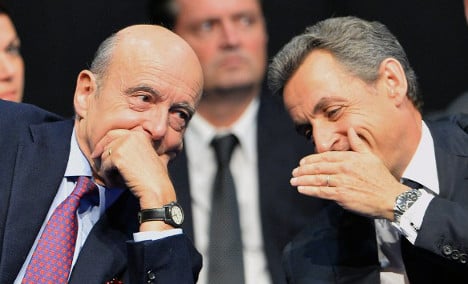Sarkozy, who stopped in Beijing on Thursday for talks with Chinese President Hu Jintao, will open the Pacific Games on Saturday during a brief trip to the French territory, which is going through a process of de-colonisation.
Speaking shortly after his arrival, Sarkozy said violence that erupted on the island of Mare on August 6, when protesters angry at rising air fares blockaded an airfield, was inexcusable.
The clashes left four people dead — all of them from the archipelago’s indigenous Kanak people, many of whom favour independence from France.
“Conflicts, whether they are between communities, unions or of a political nature, must be resolved by dialogue, exchanges, if applicable by elections, but never by violence,” Sarkozy said.
“Nothing justifies the death of four people in such circumstances.”
Under an agreement signed in 1998, New Caledonia is to hold a referendum between 2014 and 2018 on whether or not to become fully independent.
The deal, known as the Noumea Accord, followed a period of unrest in the 1980s sparked by tensions between the pro-independence camp and those in favour of remaining part of France. It also established more local autonomy.
Sarkozy said that both sides in the self-determination debate needed to work towards finding common ground.
“I remain convinced that, even among the pro-independence camp that I respect, there is an attachment for France and for our shared history,” Sarkozy told parliamentarians.
“There is even concern at the idea that we might separate… but let us reflect, there will have to be compromises.”
He said this month’s violence in Mare “goes against the grain of the immense progress that New Caledonia has made since the end of the 1980s”.
The French leader further offered his support for the decision to use two flags — with that of the Kanak people flying alongside the French tricolore — as the islands’ emblem.
The flag issue has been a constant battleground between the two sides and led the coalition government to collapse in February.
“There will be no reconciliation unless all identities are taken into account,” Sarkozy said.
He added that 70 police officers would be sent to the islands to help tackle a rising tide of drug trafficking and alcohol-related crime.
New Caledonia lies around 1,500 kilometres (900 miles) east of Australia. It has seen its wealth grow in recent years thanks to its nickel deposits, which are thought to account for around 25 percent of global reserves.
The 230,000-strong population of the island group is deeply divided between the Kanaks, a Melanesian ethnic group who make up about 44 percent of the population, and ethnic Europeans, who make up 34 percent.


 Please whitelist us to continue reading.
Please whitelist us to continue reading.
Member comments